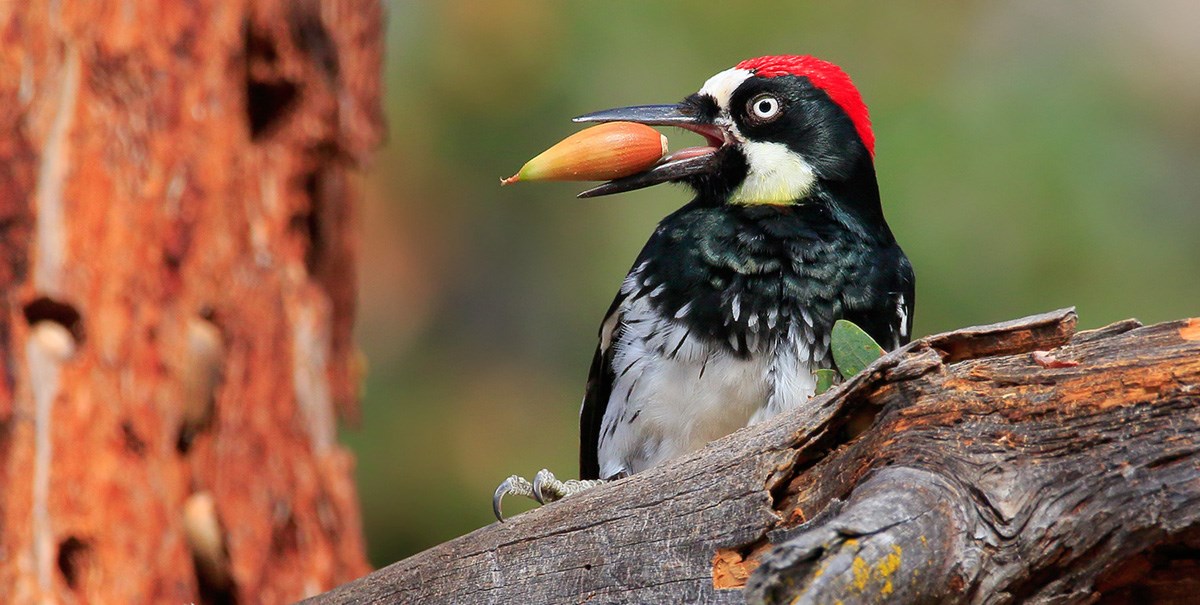Woodpeckers in Florida: Identification Tips and Habitat Preferences
Woodpeckers in Florida: Identification Tips and Habitat Preferences
Blog Article
Unveiling the Keys of Woodpeckers: Behavior, Environment, and Extra
Woodpeckers, with their one-of-a-kind actions and specialized adjustments, have actually lengthy attracted researchers and nature fanatics alike. By uncovering the mysteries surrounding woodpeckers' actions and environment selections, a much deeper understanding of these avian wonders emerges, supplying a glance right into their interesting world.
Woodpecker Behavior Insights
In analyzing woodpecker behavior, an interesting screen of specialized skills and adjustments arises, clarifying their exceptional environmental specific niche - Woodpeckers in Florida. Woodpeckers, known for their distinctive drumming on trees, have a selection of behavior attributes that add to their survival and success in their environment. One key actions is their drumming, which offers multiple purposes such as interaction, establishing territory, bring in mates, and locating food sources. This balanced pecking likewise showcases their remarkable toughness and endurance, as they can hammer away constantly at high speeds without creating damage to themselves.
Additionally, woodpeckers exhibit an one-of-a-kind feeding behavior identified by their ability to remove insects from tree bark using their specialized beaks. Their lengthy, barbed tongues aid in recording target, while their solid neck muscles supply stability and precision throughout pecking motions. This feeding technique permits woodpeckers to access concealed insect larvae and remove them with amazing performance.
Habitat Preferences and Choice
What factors influence the environment choices and selection of woodpeckers? Woodpeckers are extremely versatile birds recognized to inhabit different settings worldwide. They do display preferences for certain habitat characteristics. One important element influencing woodpecker habitat choice is the availability of suitable nesting websites. Woodpeckers typically prefer forests with a mix of mature trees that supply adequate possibilities for dental caries excavation. These dental caries function as essential nesting and roosting sites for woodpeckers and are crucial for their reproducing success.
Additionally, woodpeckers show a choice for environments with a plentiful supply of food sources. They are mainly insectivorous, feeding upon beetles, ants, larvae, and other bugs found in worn out timber or tree bark. Consequently, woodpeckers often tend to favor wooded locations with a varied insect population to meet their nutritional demands.
Additionally, the existence of dead or decaying trees is an additional crucial consider woodpecker habitat selection. These trees not just offer food resources yet likewise offer ideal go to this web-site substrate for dental caries excavation. Dead trees are necessary for the maintenance of healthy and balanced woodpecker populations, as they play an important duty in the woodpeckers' life cycle and ecosystem characteristics.
Feeding Practices and Diet Regimen Structure
Woodpeckers show a specialized feeding behavior focused on foraging for pests within various environments. In enhancement to insects, woodpeckers likewise eat tree sap, fruits, nuts, and seeds, adding variety to their diet plan depending on the period and availability of food sources.
The this content foraging techniques of woodpeckers are well-adapted to their arboreal way of living. Woodpeckers play a crucial duty in keeping the wellness of forests by controlling insect populations and assisting in the decay of wood.
Drumming Seems and Communication
Making use of rapid drumming noises on various surfaces, woodpeckers use a distinctive type of interaction to signal region boundaries and draw in friends. This drumming actions is not only a way of communication but additionally offers as a way for woodpeckers to develop their existence within a particular location. The intensity, rate, and pattern of the drumming can communicate important details to various other woodpeckers in the area.
Woodpeckers use drumming audios to reveal their visibility in an area and to warn off possible trespassers. The loud and repetitive nature of the drumming works as a clear signal to other woodpeckers that the location is already asserted. This helps in reducing problems and reducing physical battles between people.

Survival Adaptations and Specialized Anatomy

Conclusion
To conclude, woodpeckers show special habits, such as drumming sounds for interaction, and have specialized composition for survival in their chosen habitats. Their feeding behaviors and diet plan composition further show their versatility to various settings. By comprehending these aspects of woodpeckers, scientists and guardians can better secure and protect these fascinating birds and their ecological communities.
Report this page